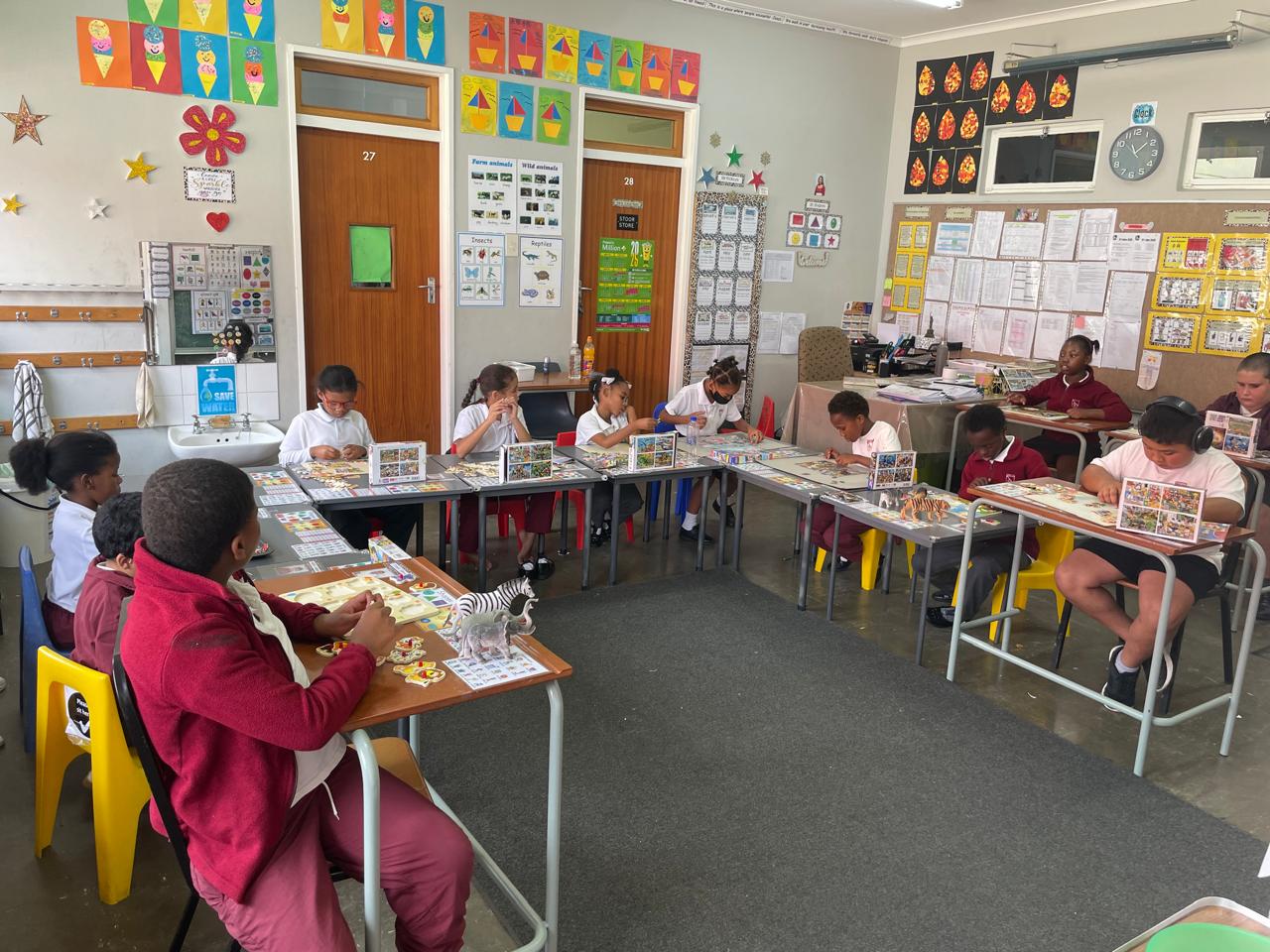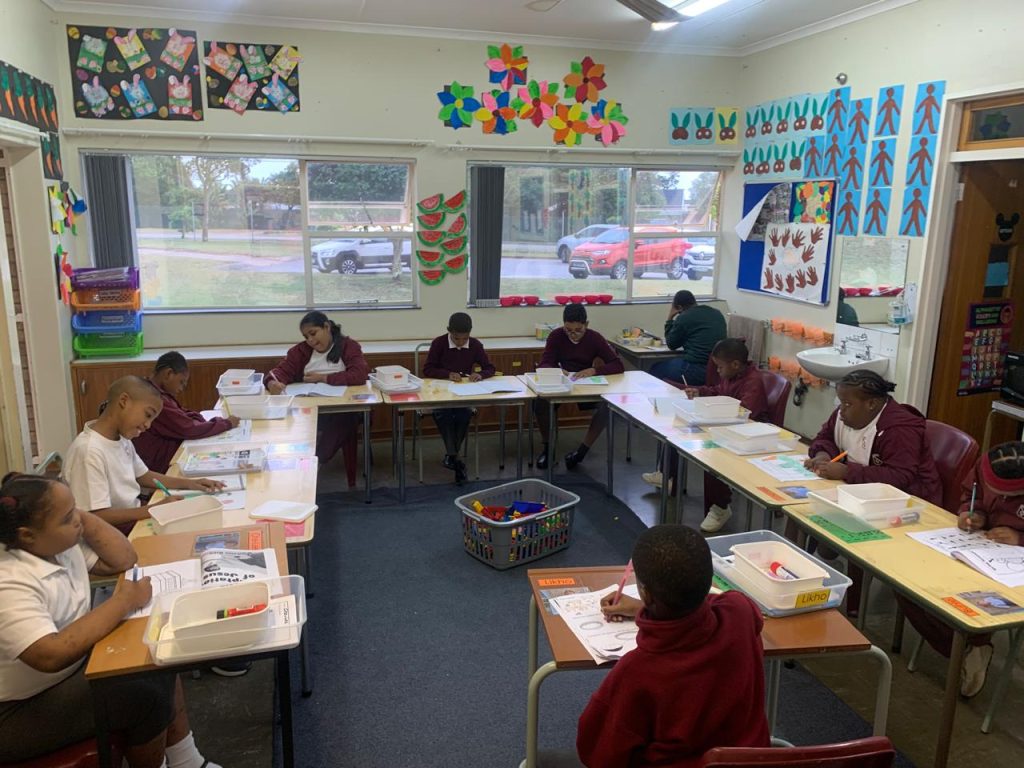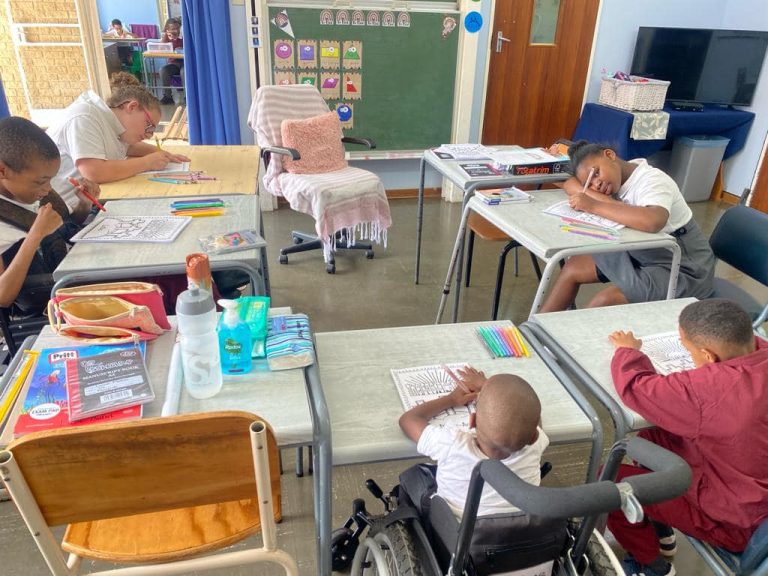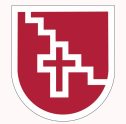Academics
Our Curriculum Overview
We adopt a holistic, child-centered approach
Merryvale School adopts a holistic, child-centered teaching approach, ensuring that each child receives the support they need to succeed in their unique learning journey. Here are some key elements of the curriculum at Merryvale School:
We make use of the DCAPS Curriculum (Differentiated Curriculum and Assessment Policy Statement).
Depending on the learner’s age, development and progress, learners are placed in the following phases:
- Junior Phase
- Middle Phase
- Senior Phase
- Occupational Phase
- Practical Phase
- Neural Phase
- Autistic(ASD) Phase

Pre-Vocational/Vocational skills
SPECIALISED FACILITIES: Merryvale School has many well equipped and functional venues which are utilised as part of our vocational skills development programme. These include a woodwork room, kitchen, library, gym and hair & nail salon. Other areas of skill development include: Housekeeping, Needlework, General Maintenance, Basic Vehicle Maintenance, Recycling of Waste, Basic Electrical Work, Gardening, Masonry and Woodwork. Many learners are exposed to internal and external work environments during their final two years in the Occupational Phase.

Educational Programme
Our curriculum consists of a combination of content, derived from the Differentiated National Curriculum for Severely & Profoundly Intellectually Disabled Learners. Also included are aspects from the National CAPS Curriculum. Our focus areas are Language, Mathematics and Life Skills, as well as Skills Training. Our Language of Learning and Teaching (LOLT) is English and Afrikaans. Learners do not write tests or exams, but progress through each phase according to their age.
What are the key Features of the DCAPS Curriculum?
Individualised Learning
The DCAPS curriculum is designed to be highly individualised, focusing on each learner’s unique needs, abilities, and developmental stages. This ensures that learners receive a curriculum that suits their pace of learning, making the material more accessible and relevant to them.
Developmental Focus
The curriculum prioritises the developmental needs of learners. It covers a broad spectrum of skills across different domains, including cognitive, physical, emotional, social, and communication skills. The curriculum takes into account that learners may progress through developmental milestones at different rates.
Life Skills and Functional Literacy
A significant emphasis is placed on life skills education, such as self-care, social interactions, and personal safety, to help learners function independently in society. Basic literacy and numeracy skills are also targeted but tailored to the developmental levels of learners, ensuring they build foundational skills for communication, problem-solving, and daily living.
Inclusive Learning Environment
The DCAPS curriculum promotes an inclusive approach to learning, offering a flexible and adaptable framework. It recognises the diversity of learners and includes varied teaching strategies and materials, such as visual aids, hands-on learning, and adaptive technology, to cater to learners with different types of disabilities.
Holistic Assessment
Continuous assessment is an important component of the DCAPS curriculum. Assessment is not just based on academic performance but also takes into account personal growth, social development, and the acquisition of life skills. The assessment tools are designed to be developmental, measuring progress rather than focusing on grades or traditional academic benchmarks.
Focus on Communication and Social Skills
Given the challenges some learners with special needs face in terms of communication, the curriculum emphasises improving communication abilities (both verbal and non-verbal). This may include speech therapy, sign language, augmentative communication devices, or other adaptive methods tailored to the learner’s specific needs.
Collaborative Approach
The DCAPS curriculum encourages collaboration between teachers, therapists, and families. Teachers often work closely with speech therapists, occupational therapists, and other specialists to create individualised learning programs and ensure that learners receive comprehensive support.
Structured Learning Areas
The DCAPS curriculum is organised into learning areas that are similar to the traditional curriculum but adapted for learners with special needs. These areas include: Personal and Social Development, Language and Communication, Mathematical Development, Physical Development, Creative and Artistic Expression. Each learner’s progress is monitored carefully, and adjustments are made as needed to support their development.
Nurturing potential, one child at a time.


© 2026 All Rights Reserved.
